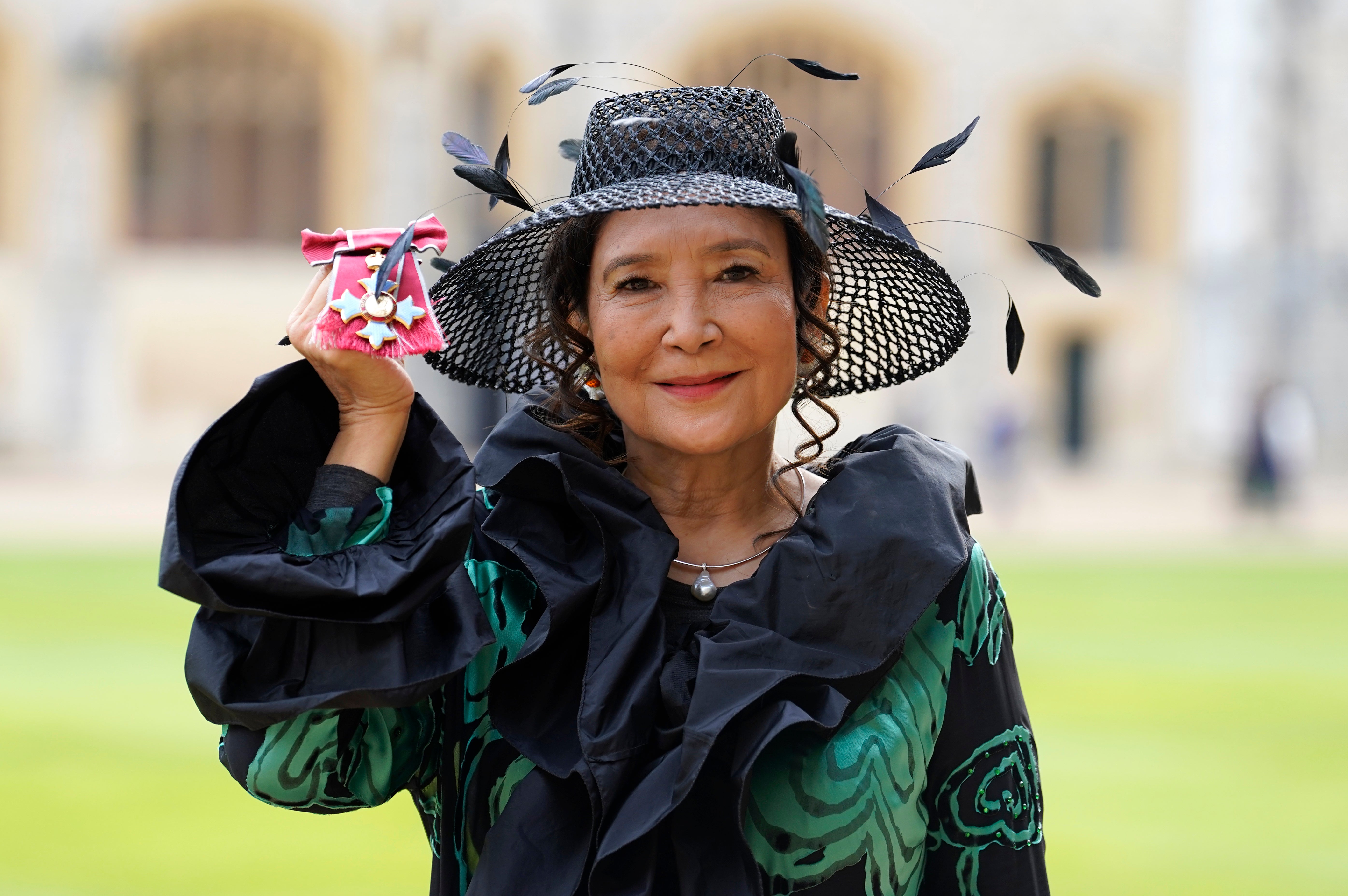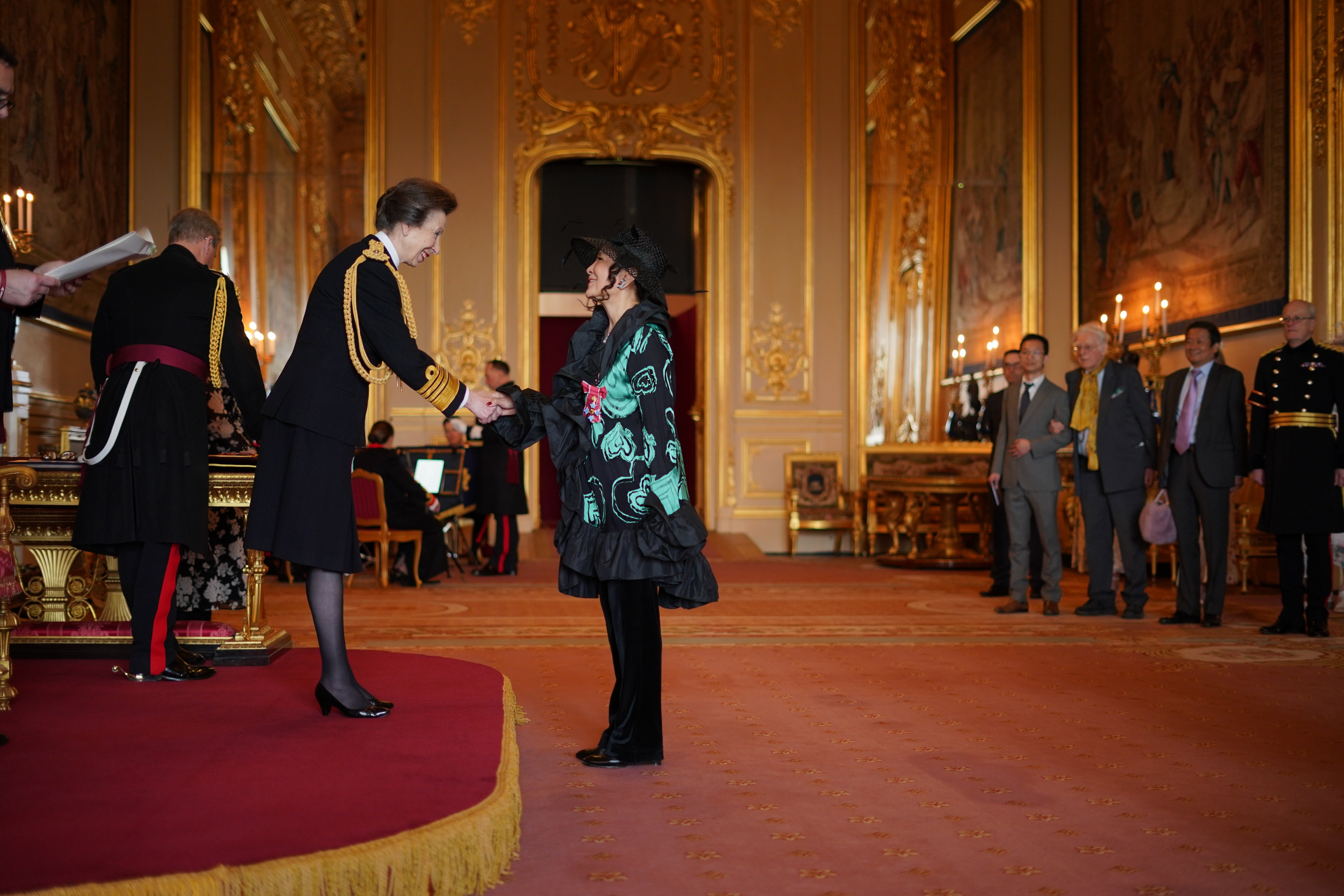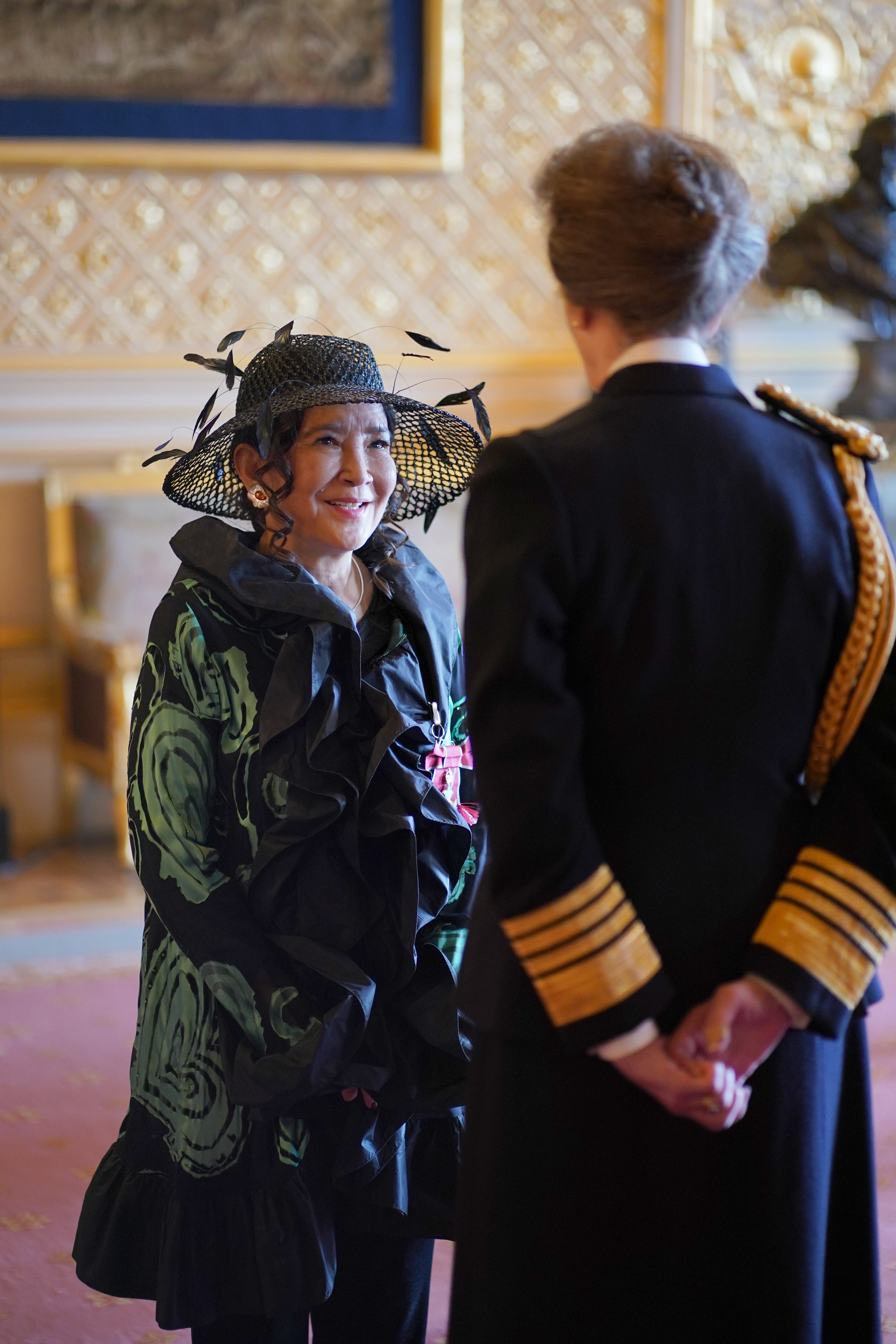Wild Swans author Jung Chang awarded CBE for services to literature
Dr Jung Chang has been made a Commander of the British Empire

The best-selling author whose memoir Wild Swans was banned in mainland China but sold millions of copies worldwide was been awarded a CBE at Windsor Castle.
Jung Chang was recognised for her services to literature and history, having authored a number of international bestsellers, including a book based on the experiences and repression endured by three generations of women in 20th-century Communist China.
First published in 1991, her autobiographical book Wild Swans: Three Daughters of China sold more than 20 million copies worldwide, was translated into dozens of languages, and won Book of the Year at the British Book Awards in 1993.
Following the lives of her grandmother, her mother and herself, the book was banned in China due to its harrowing depiction account of growing up in China under the rule of Mao Zedong.

Dr Chang, who left China 45 years ago to study in Britain, previously told The Independent she was “immensely grateful” to receive the CBE in the New Year Honours.
She said: “I feel extremely honoured to be awarded a CBE for services to literature and to history. I am immensely grateful for the recognition from Britain which has most kindly allowed me to make it my home.
“I regard the honour also as appreciation for my mother, other members of my family, and all the Chinese people who have helped me in researching and writing Wild Swans, the biography of Mao and biographies of other major characters of modern China. I want to thank my adopted country again.”
Born in 1952 to Communist Party officials, she and her family had originally been supporters of Mao and had led a comfortable lifestyle, with Dr Chang choosing to become a Red Guard at the age of 14.
However, after Mao’s push to modernise China’s economy in the Great Leap Forward led to famine, her parents opposed Mao’s policies, and they were later targeted during the Cultural Revolution, during which Dr Chang refused to participate in attacks on her teachers.
Speaking previously about growing up under cultural censorship, Dr Chang told The Observer: “To be a writer was the most dangerous profession. I wrote my first poem aged 16 and destroyed it. When I was working spreading manure in the paddy fields aged 16 and 17, I was always writing in my head.

“In my home town there was a black market selling books that had been banned. My 13-year-old brother was very entrepreneurial. He made money dealing Mao badges and used it to buy books, which he hid in a hole he dug in the garden.”
After her parents were denounced by the regime and imprisoned in the 1970s, Dr Chang said her respect for Mao had been destroyed and she pretended to grieve during the outbreak of mourning for his death in 1976.
The author left China in 1978 to study in London and then York and became the first person from the People’s Republic of China to be awarded a PhD from a British university.
Dr Chang also received critical acclaim for her 800-page biography of Mao, which was co-authored with her husband, the Irish historian Jon Halliday and published in 2005. In conducting their research, they interviewed hundreds of people who had known the leader, with 60,000 copies sold in the first month alone.
As well as this, she has also authored books on Empress Dowager Cixi, who led China from 1861 until her death in 1908, and the lives of the Soong sisters, who were among the most significant political figures of early 20th-century China.
Join our commenting forum
Join thought-provoking conversations, follow other Independent readers and see their replies
Comments
Bookmark popover
Removed from bookmarks